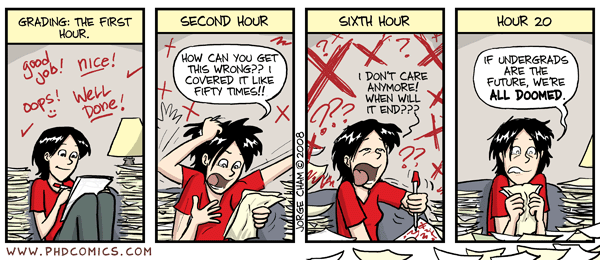 So that was 2014. It's had its ups and downs so thank goodness every year is a bit different. This year has been slightly more stable than previous ones because I had my contract renewed for its final year and there were no relationship wobbles. The only thing you can be sure of is the past. I keep telling myself that I'll just have to keep trying to deal with the massive uncertainty heading my way in 2015 but it's not so easy.
So that was 2014. It's had its ups and downs so thank goodness every year is a bit different. This year has been slightly more stable than previous ones because I had my contract renewed for its final year and there were no relationship wobbles. The only thing you can be sure of is the past. I keep telling myself that I'll just have to keep trying to deal with the massive uncertainty heading my way in 2015 but it's not so easy.Will I get a job? Will I lose my apartment? Will I be tossed out of France with nothing? Or... will I get another short term contract (long-term ones are pipe dreams in France). Will I secure all the documentation to finally apply for French naturalisation? Yes, by the end of September I'll have lived and worked in this amazing and frustrating country for five years.

A few months ago I passed the language assessment test required to prove I have enough French competence to survive here so that's step one ticked off. In a few months time I'll need to spend a fortune on obtaining official documents from NZ, paying high prices to have them translated into French by official translators and negotiate the vagaries of the French immigration civil servants. Being optimistic but, hopefully, realistic I'll get my dossier together correctly to the State's satisfaction and then I'll have to wait up to two years to find out if I'm acceptable or not, all the while remaining employed at a certain level of income to satisfy the authorities, and trying not to worry about 'what if's. OK, I can do that. So 2015 could be a key year in my destiny, assuming everything else stays stable. I was reminded recently that even folks with comfortable and stable lives can have everything overturned.
 Jean-Claude was diagnosed with prostate cancer. We think it has been caught fairly early (still waiting for the post op results) and he was saying he wasn't worried, he just wanted it out and to get back to his life. Naturally he was concerned though he tried not to show it. Then he seemed to think it was a good cancer to have because it's so treatable. His confidence and optimism were about to take a bruising.
Jean-Claude was diagnosed with prostate cancer. We think it has been caught fairly early (still waiting for the post op results) and he was saying he wasn't worried, he just wanted it out and to get back to his life. Naturally he was concerned though he tried not to show it. Then he seemed to think it was a good cancer to have because it's so treatable. His confidence and optimism were about to take a bruising.The endoscopic operation knocked him about for several days and he decided not to go home as early as he was permitted. He didn't like all the tubes coming out of him and he was very uncomfortable, with so many restrictions. It's coming up to a month since the operation and he's frustrated at how he can't go back to the life he had. Despite the surgeon's best efforts there are depressing consequences to prostate surgery: urinary incontinence and impotence. Wearing ladies sanitary pads in your jocks is not a morale booster for a guy even if it's only there to catch a few wayward drops throughout the day and night. He's gaining more and more control as the weeks go by but what he really wants is to not have to wear pads.The jury's out on that.

We try to laugh about his new 'follies bergere' look. Operations of this nature now require patients to wear special black stockings to minimise the risk of developing blood clots. Trouble is, they irritate the skin and cause painful welts, don't stay up and make him look like a cross-dresser. He hates them and can quite understand why women prefer not to wear stockings these days. Happily he can consign them to the rubbish bin in a few days. His mornings have to be structured around the visit by the health nurse who comes to inject him in the waist with blood-thinning products or take blood samples. So, it's turned out to be a more complicated process than going into the clinic, having the prostate removed and then carrying on as normal. Normal is obliged to redefine itself.

Tonight we'll get together over a glass of champagne and celebrate another year; 2014 - a year of visitors from NZ, a trip to Corsica, starting a gardening project together, my modest successes with my university students. I'll be celebrating that I'm still hanging in here with my job, he with his health.
2015 will see each of us changing decade milestones. I'll be 60 in the first part of the year and he'll be 70 in the latter. Hey, no pressure, but 2015 could be a make or break year. Exciting! I don't need to make new year resolutions, simply to be resolute. How about you?
Photo comments: JC ready to attack his birthday pavlova (note his beautiful 19th Century candelabra); in hospital and able to eat real food at last - but he hates green beans.
Other photo sources: http://teewallpapers.net/new-years-eve-celebrations-welcoming-the-sacramento-bee-2015
http://www.happynewyear2015wishess.com/2014/10/sms-bonne-annee-2015-best-and-popular.html

























































